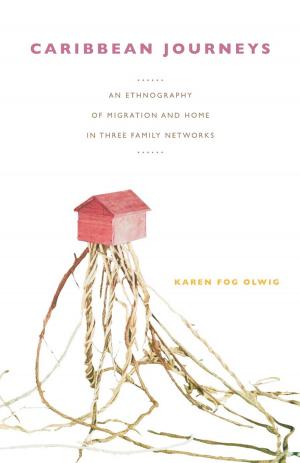Latina Activists across Borders
Women’s Grassroots Organizing in Mexico and Texas
Nonfiction, Social & Cultural Studies, Social Science, Gender Studies, Women&| Author: | Milagros Peña | ISBN: | 9780822389873 |
| Publisher: | Duke University Press | Publication: | April 4, 2007 |
| Imprint: | Duke University Press Books | Language: | English |
| Author: | Milagros Peña |
| ISBN: | 9780822389873 |
| Publisher: | Duke University Press |
| Publication: | April 4, 2007 |
| Imprint: | Duke University Press Books |
| Language: | English |
Over the past twenty-five years, nongovernment organizations (NGOs) run by women and devoted to advancing women’s well-being have proliferated in Mexico and along both sides of the U.S.-Mexico border. In this sociological analysis of grassroots activism, Milagros Peña compares women’s NGOs in two regions—the state of Michoacán in central Mexico and the border region encompassing El Paso, Texas, and Ciudad Juárez, Mexico. In both Michoacán and the border region, women have organized to confront a variety of concerns, including domestic violence, the growing number of single women who are heads of households, and exploitive labor conditions. By comparing women’s activism in two distinct areas, Peña illuminates their different motivations, alliances, and organizational strategies in relation to local conditions and national and international activist networks.
Drawing on interviews with the leaders of more than two dozen women’s NGOs in Michoacán and El Paso/Ciudad Juárez, Peña examines the influence of the Roman Catholic Church and liberation theology on Latina activism, and she describes how activist affiliations increasingly cross ethnic, racial, and class lines. Women’s NGOs in Michoacán put an enormous amount of energy into preparations for the 1995 United Nations–sponsored World Conference on Women in Beijing, and they developed extensive activist networks as a result. As Peña demonstrates, activists in El Paso/Ciudad Juárez were less interested in the Beijing conference; they were intensely focused on issues related to immigration and to the murders and disappearances of scores of women in Ciudad Juárez. Ultimately, Peña’s study highlights the consciousness-raising work done by NGOs run by and for Mexican and Mexican American women: they encourage Latinas to connect their personal lives to the broader political, economic, social, and cultural issues affecting them.
Over the past twenty-five years, nongovernment organizations (NGOs) run by women and devoted to advancing women’s well-being have proliferated in Mexico and along both sides of the U.S.-Mexico border. In this sociological analysis of grassroots activism, Milagros Peña compares women’s NGOs in two regions—the state of Michoacán in central Mexico and the border region encompassing El Paso, Texas, and Ciudad Juárez, Mexico. In both Michoacán and the border region, women have organized to confront a variety of concerns, including domestic violence, the growing number of single women who are heads of households, and exploitive labor conditions. By comparing women’s activism in two distinct areas, Peña illuminates their different motivations, alliances, and organizational strategies in relation to local conditions and national and international activist networks.
Drawing on interviews with the leaders of more than two dozen women’s NGOs in Michoacán and El Paso/Ciudad Juárez, Peña examines the influence of the Roman Catholic Church and liberation theology on Latina activism, and she describes how activist affiliations increasingly cross ethnic, racial, and class lines. Women’s NGOs in Michoacán put an enormous amount of energy into preparations for the 1995 United Nations–sponsored World Conference on Women in Beijing, and they developed extensive activist networks as a result. As Peña demonstrates, activists in El Paso/Ciudad Juárez were less interested in the Beijing conference; they were intensely focused on issues related to immigration and to the murders and disappearances of scores of women in Ciudad Juárez. Ultimately, Peña’s study highlights the consciousness-raising work done by NGOs run by and for Mexican and Mexican American women: they encourage Latinas to connect their personal lives to the broader political, economic, social, and cultural issues affecting them.















